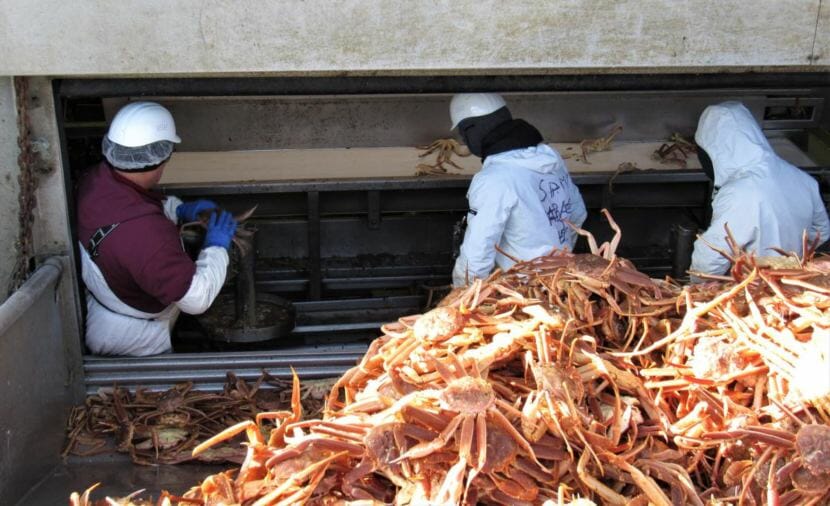
Thanks to a policy reversal, prison inmates will be allowed to work at UniSea’s fish processing plant as early as January.
On Tuesday, the Unalaska City Council approved the city’s participation in a state-run program that employs select prisoners in the seafood industry while they finish their sentences.
The council’s five-to-one vote overturned last month’s narrow rejection of the program, authorizing a “trial run” for four inmates to live and work at UniSea after they’re vetted by the Alaska Department of Corrections.
Vice Mayor Dennis Robinson voted with the majority, praising the effort to reduce Alaska’s high repeat offense rate by helping prisoners learn new skills and prepare for life after incarceration.
“The current system is broken,” he said. “The status quo is broken. We’re just running people through a mill and back into jail, not giving them the tools to go forward.”
Robinson said he hopes the resolution’s language will alleviate concerns about community safety, which has been a hot topic since the trial was proposed in September.
The resolution prohibits the participation of sex offenders, allows Unalaska to opt out at any time, and requires the state to cover all costs, including electronic monitoring equipment that will dictate where prisoners can go.
Councilor Dave Gregory wasn’t satisfied. He cast the sole “no” vote on Tuesday, after previously casting the sole “no” vote that sunk the measure in October.
“I support decreasing the recidivism rate. I just don’t think Unalaska should have to bear the brunt of that responsibility and risk,” he said. “Maybe I’d change my mind if the Department of Corrections had fewer Cordovas and more Kenais.”
Over the last five years, DOC officials said more than 20 inmates have gone through the program at plants in Cordova and Kenai. While all Kenai participants have completed it without issue, a few of the Cordova prisoners were caught using drugs near the ends of their work periods.
If that happens in Unalaska, Acting Police Chief Jennifer Shockley said local authorities are ready to assist following “extensive” discussions with DOC leaders and UniSea’s security team. She said most of her department’s work will fall to the corrections division, which is fully staffed and trained.
“The program, as developed and envisioned, is something that’s well within our capabilities,” she said. “There is work that would be required of our police staff, but most of that would be spot visits to make sure things are going along as they should.”
The DOC also assured councilors the program shouldn’t be affected when Gov.-elect Mike Dunleavy takes office, even though he could replace department leadership.
“Everyone who’s participated in the program has never been re-arrested,” said Dave Bacher, special assistant to DOC Commissioner Dean Williams. “So I can’t speak for the incoming administration or a new commissioner, but I think they’d look at the success of the program and not stop it.”
Unalaska’s trial program is expected to start during the winter fishing season, though Mayor Frank Kelty said the DOC is still working out the timing with UniSea.
Meanwhile, the city is exploring another partnership with the DOC.
Councilors directed the city manager to look into a state program that allows first-time and low-level offenders to serve time in their home communities under electronic monitoring. The initiative would let qualified Unalaskans complete jail sentences on the island instead of in Anchorage or another distant city.
